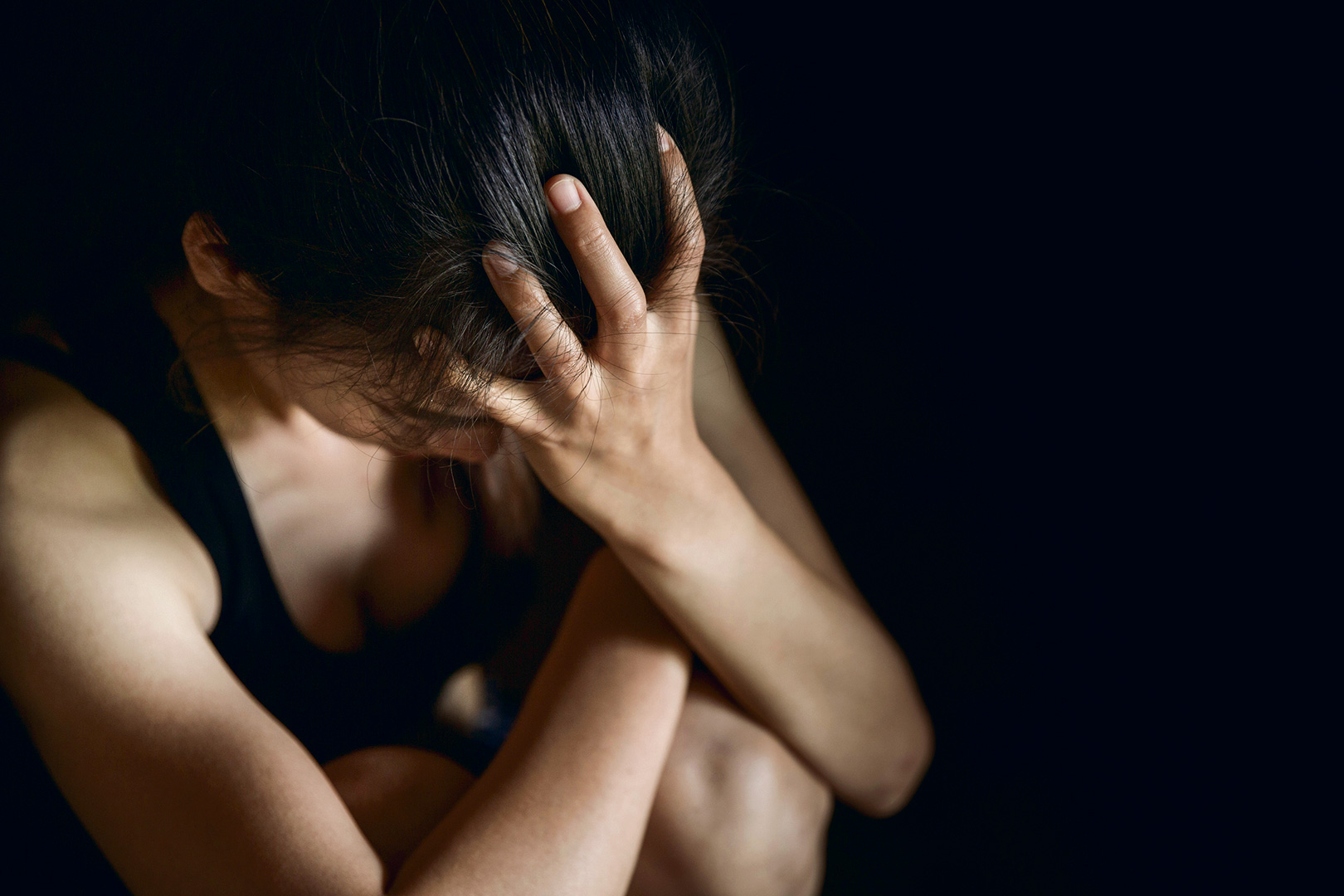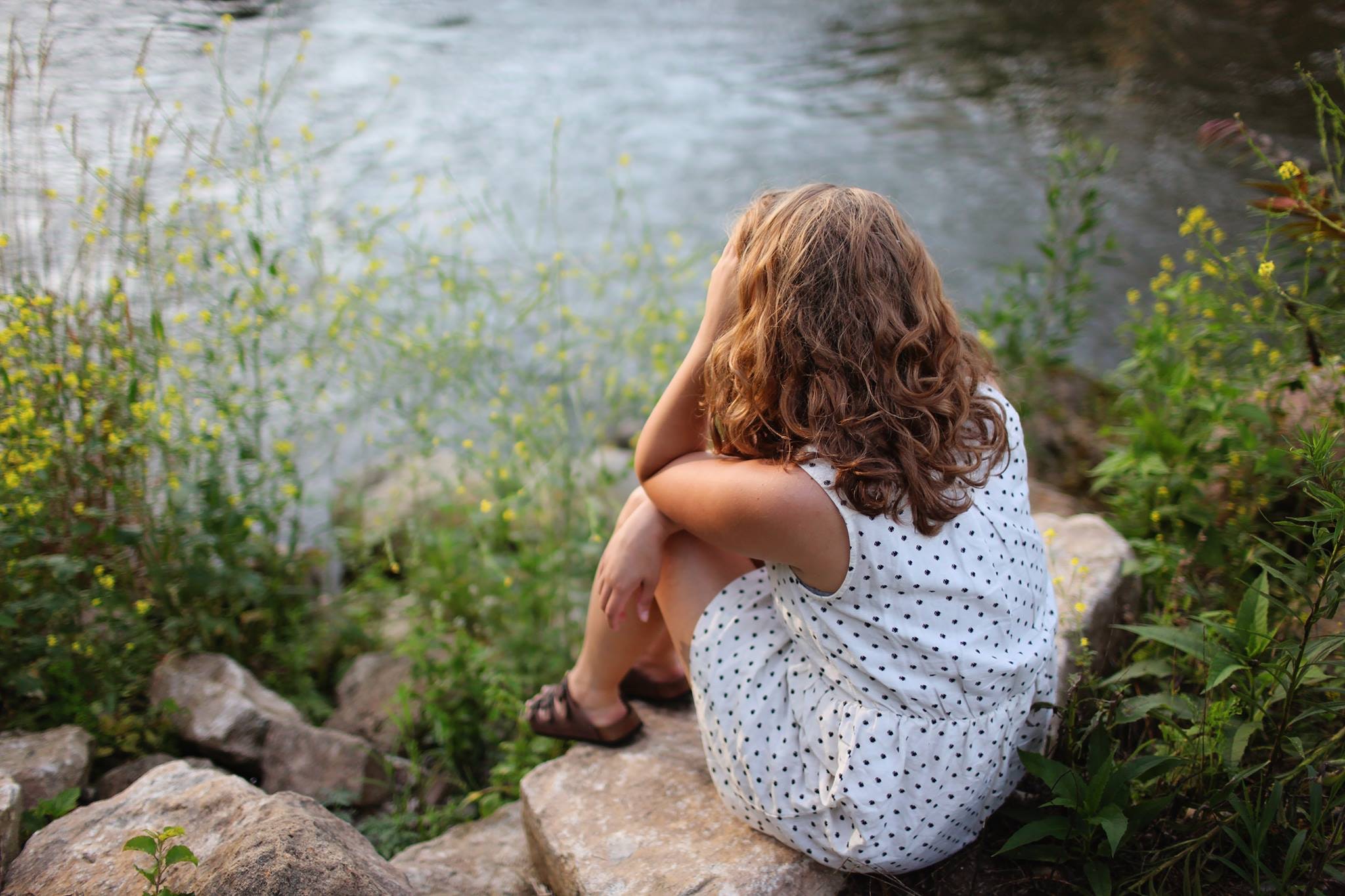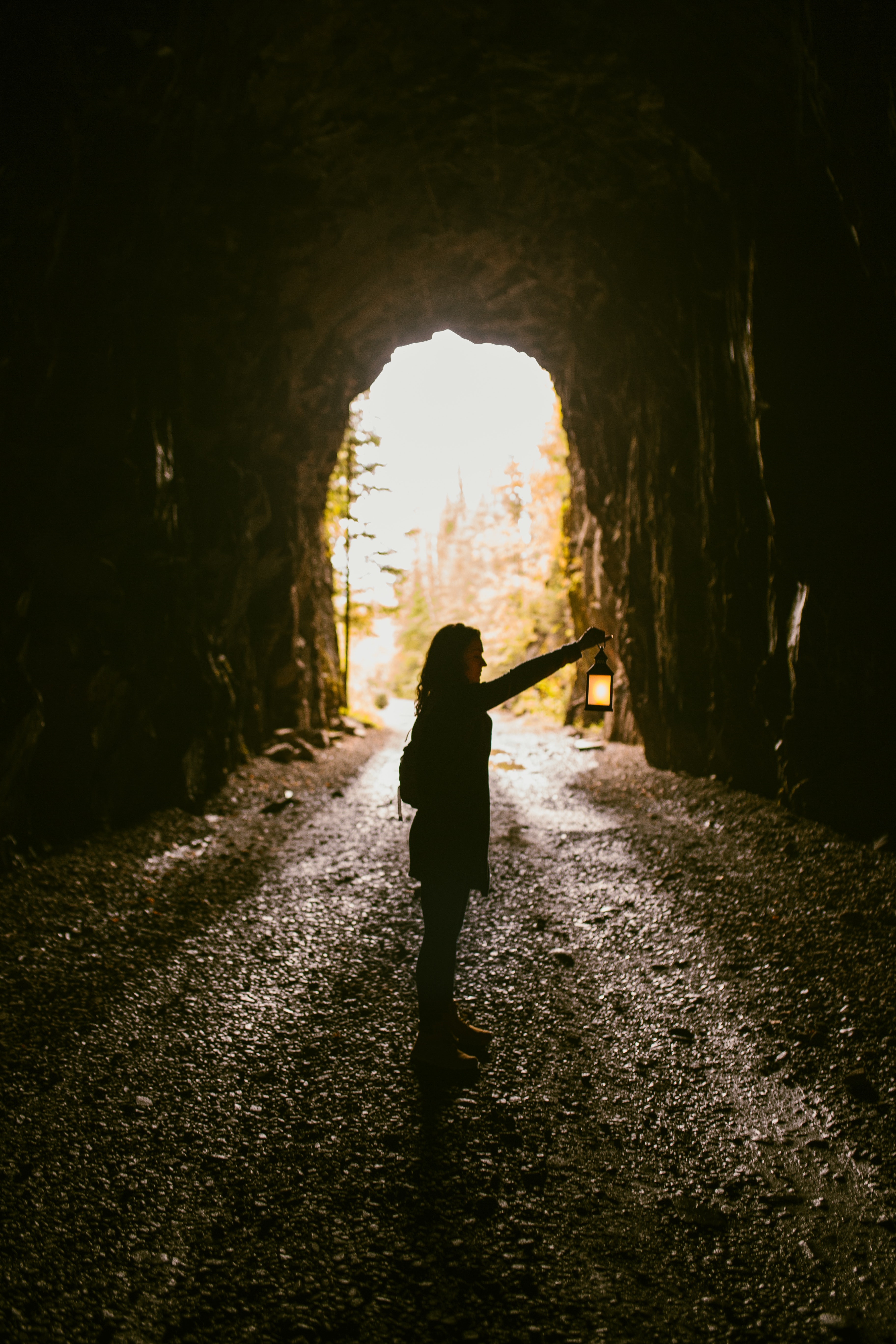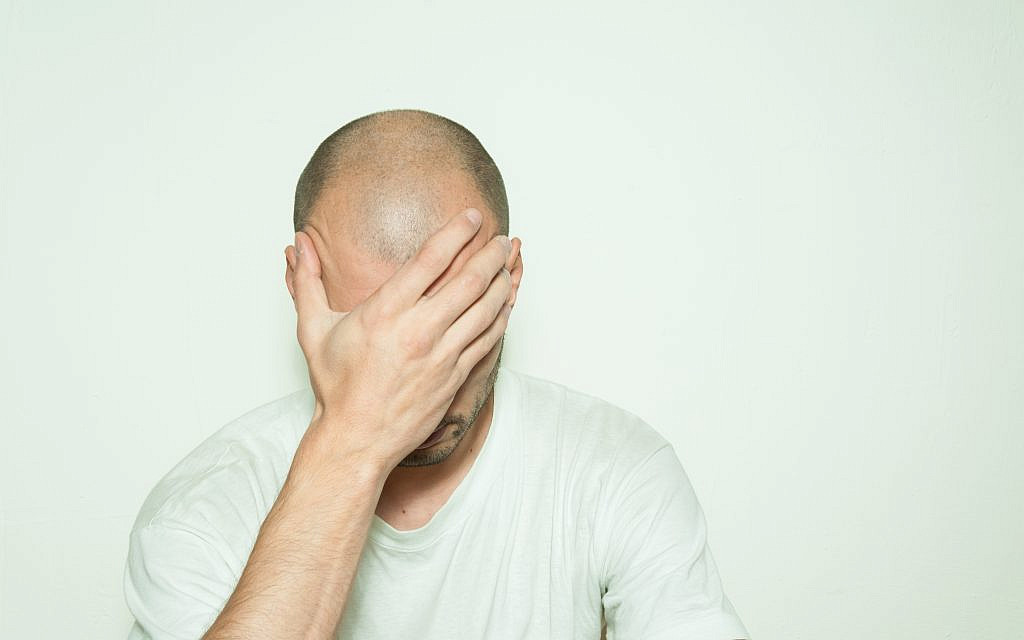Candid confessions
Strong, devastating, resilient, inspiring and courageous. As part of World Mental Health Day last week, five members of the Jewish community share their very personal struggles.
ANXIETY
45-year-old male
“TWO years ago, I broke a little ornament. I put it in a drawer and forgot all about it … until now. I am wracked with guilt. I can think of nothing else. I am overwhelmed, no, tormented, by a need to confess. It feels like I will explode unless I get the words out of my mouth. I can’t say them quickly enough. And so I do. I own up, and in that moment the anguish subsides. At last. But it’s only in that moment. For as soon as I’ve allayed my guilt over the ornament, my mind starts scouring my memory for other long-forgotten minor misdemeanours. And it doesn’t stop until it finds one – and then the process begins all over again. The guilt, the anguish, the confession.
It has been like this for two weeks. Me at the mercy of my mind, confessing one trivial thing after another, after another.
I say “me”. There are two “me”s. The me in my head that can’t stop thinking, constantly analysing my feelings, my thoughts. Even when it feels like there’s nothing to think about, I’m thinking about the fact that I have nothing to think about, and thinking about how long I’ve been feeling like that, and if it means I’m okay now. But I’m not, I know it, because I’m consumed by my thoughts about thinking.
Then there’s the other me. The physical me that goes to work and talks to people, that presents itself to and communicates with other people. That me though feels like an act that I’m putting on for the outside world, just a puppet, concealing the real me that’s going on inside my head – the thoughts and feelings that I can’t stop and don’t want to be having – a scratched record that repeats and repeats and repeats and repeats.
As for my current state – the searching, the guilt, the anguish, the confession, the searching, the guilt, the anguish, the confession – this cycle is just the latest manifestation of my generalised anxiety disorder. Forced by my mind to act in a certain way just to alleviate the anguish over whatever the latest theme is that my brain has latched onto.
It has been like this on and off for more than 20 years. In that time, I’ve tried all sorts of things to switch off the me that’s in my head and bring it back to the real world. From meditation to medication, from holding my breath to jabbing myself with keys. And therapy. Lots of therapy.
The pills actually work. Not all pills, only a particular type. And when they do, my mind goes calm, the intrusive, tormenting thoughts fall silent. I feel normal again, the me in my head and physical me united. I have clarity and can see that my thought process before was out of control. I can’t even relate to what I was going through. I can’t really explain it, but this is my attempt to do just that. To explain it – two decades at the mercy of anxiety.”

DEPRESSION AND ANXIETY
34-year-old male
“PRESSURE and change in life often makes your mind swing to thoughts you start to believe. This is exactly what happened to me. I started to believe that life was too hard, too difficult to keep going. My sight turned black, I put it down to a change in vision and my thoughts became irrational.
I just thought this was life, this is what it was meant to be, trying to think of every possible way to make it disappear.
As hard as I could have tried, it reached a point where it became too much to handle and my life practically imploded.
Following a visit to the emergency department and involvement from the CAT team, I was admitted into a psychiatric ward. I was down at my lowest point in life.
To say the least, it happened hard and it happened fast but if it wasn’t for the actions of my loved ones who noticed the change in me, I would not be where I am today.
I feel so lucky to say that this was the start of the end for me. I am now in the best place I have ever been. This journey has made me a stronger person.
I regularly see a psychologist and continue to take medication to manage my symptoms. Therapy has been empowering and has been the key to my progress.
Throughout my recovery, the majority of my family and friends showed an outpouring of love and support. Some showed a lack of sensitivity and empathy, but I believe this is attributed to ignorance.
Ultimately though, it was the love and support of my wife and family which has pulled me through.
Prior to experiencing it myself, the words depression and anxiety had always been thrown around but I had never fully understood what this meant, often dismissing the topic with insensitivity and with disregard.
I fought hard to avoid acknowledging it happening to me, but being on the other side of it, I find it my responsibility to share my experiences (especially with men) and provide reassurance that seeking help is the best thing to do.
Making the first step, is all it takes.”

BEREAVED BY SUICIDE
30-year-old female
“MY father was a strong and proud man. He lived by his values and integrity. He worked hard and was a perfectionist, and was naturally gifted to whatever he tried his hand at. Tall, dark and with smooth olive skin, he had a big voice, and a commanding presence.
This is what I see in photos. This is what I have been told.
My father lost his battle with bipolar depression when I was a toddler.
As a child, when friends asked where my dad was, I told them what I knew, that he had been very sick and is now in heaven.
Even today, in my early 30s, when people ask me what happened to my dad, I tell them he was very ill, and there were “complications”. And that is true.
But why do I avoid detail?
Not because I am ashamed. I know there is no shame (despite society’s attempts to make me feel this way.) Not because I am embarrassed. Because it is deeply personal. And because I know, most people don’t get it. I’ve seen the face of shock, of judgement, of pity too many times. I hate that face.
And also, I refuse to have my father and his memory diluted and defined by how he left this world. He was more than his passing. He was a man with a life — with hopes and dreams, of accomplishments and passion and fears, like all of us. He was a person, not just a statistic. He was my dad.
I guess it is hard for people to understand the gravity of mental illness, because it is not something to be physically seen. I remember the first time I saw pictures of a normal brain scan against a brain scan of someone suffering with bipolar. Whole sections of the brain that should have been lit up were blacked out. Finally I understood what was meant by “chemical imbalance”. Depression is more than “feeling down” — it is as much a disease as cancer.
When my father underwent his battles, medicine and society lagged behind. While there is still a lot of work to be done around treating and destigmatising mental health, we have come a long way since the ’80s and ’90s. But, we must keep pushing forward, keep talking to each other — and actually listening to what we hear in response.”

DEPRESSION INDUCED BY SEXUAL ASSAULT
28-year-old male
“IAM the happy-go-lucky guy, who is there to make you laugh or cringe with his awful jokes. But a lot of that is not always as genuine as it seems.
Being a gay Orthodox Jew who lives in a country that is not his own can be challenging at times — especially when I do not have the knowledge nor experience of where to turn to.
In 2012, I survived a 48-hour ordeal where I was the victim of a sexual assault. Only a handful of people know about it. It is a constant struggle and over the years I have dealt with difficult depression, guilt and shame. Guilt; that I should have done more and I am yet to come forward and report it. Shame; by those who I tell, by the community, and for feeling less than on top of the great deal of anxiety that I already feel for trying to fit into a modern Orthodox community, that is also genuine to who I am.
Over the last three years I have made friends and family here in Melbourne and in the Jewish community, and although there is always darkness, the people with whom I surround myself warm me and give me the strength to push on — Not always for me, but for others; for those who cannot, or do not know how.
Mental illness isn’t about being “crazy”, and it is not always visible. I have always recognised that my mental health is mostly kept secret and many who know me would be surprised to know this is my truth.
I have learnt to try to reach out in the darkest moments, and I have taught others to listen for those silent cries.”

DEPRESSION AND ANXIETY INDUCED BY DOMESTIC VIOLENCE
49-year-old female
“MOST of the books and articles about domestic violence finish with “escape from the perpetrator” as the escape marks “the happily ever after”. It was far from the truth in my case. The escape was the beginning of the most difficult and challenging time of my life: criminal courts, family courts, loss of hopes, plans, future, home, financial support, friends, community.
For me there was no time for grieving for all these losses as I had to attend to many challenges and at the same time try to rebuild myself from scratch to be able to look after my children.
Then it crept into my life — the darkness.
Once, I read the description of a person suffering depression: you are at the bottom of a dark, deep, cold well with slimy walls and a bright round opening is shining far above. The life out there is beautiful, warm, colourful and adventurous. You are trying to climb the slimy walls, breaking your nails, maybe moving up an inch but inevitably falling back to the bottom. After few attempts you just give up.
This describes my feelings accurately.
I lost interest in everything that used to excite me, every move became a struggle, I was jealous of people who could enjoy their lives. My heart was palpitating, I could not sleep, I felt a huge pressure against my chest as if a massive boulder was placed on it.
As a survivor of domestic violence I found it extremely difficult to open up and seek help: I was preconditioned to “keep quiet”, not to disclose anything to anyone, not to trust people.
So I suffered in silence, pretending I was ok. Another person who suffered depression told me that she hated when people complimented her looks because the worse she felt inside the better she wanted to look outside. I can relate to that: I’d mastered the art of disguise because I was afraid to expose my “weakness”, afraid of people taking advantage of this “weakness”, just afraid full stop.
After a while, when the sleep deprivation was causing me to lose my concentration I decided to seek help. I was offered antidepressants and counselling. It was a long and bumpy road of trials to find the right medication. My sleep became better but general anxiety was still overwhelming.
My biggest dream at the time was to wake up and feel happy…
When slowly I started opening up to my children, parents and friends about my feelings and struggles, I realised I had their full understanding and support. I guess, in my case, the stigma was only in my own mind.
I still wish to be happy…”
Lifeline: 13 11 14.
Get The AJN Newsletter by email and never miss our top stories Free Sign Up


comments